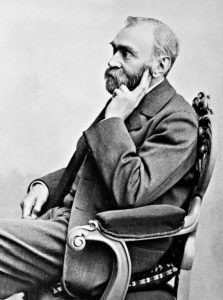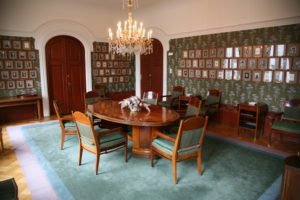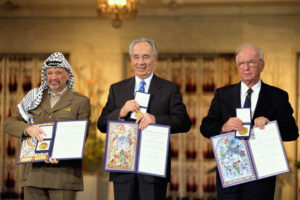Should Nobel Peace Prize be Abolished? There are divided opinions in regards to this question given that the prize is always a hot topic. The Nobel Peace Prize ought to reward greatness but is prone to subjectivity and regarded as unfair by other parties.
What is Nobel Peace Prize?
The idea was derived from Alfred Nobel’s will, which authorized five Nobel Prizes, in which the Nobel Peace Prize is part of [Source], and the list consists of Chemistry, Physics, Physiology or Medicine and Literature. Mr Nobel was a Swedish industrialist, inventor and armaments manufacturer. Nobel Prize has consistently been awarded to deserving people since March 1901.

According to Nobel’s will, the Nobel Peace Prize is supposed to be given to those who have “done the most or the best work for fraternity between nations, the abolition or reduction of standing armies and the holding and promotion of peace congresses”. It is now 119 years since the first award was given, and currently, it is held by Maria Ressa and Dmitry Muratov. It is presented by the Norwegian Nobel Committee on behalf of the estate of Alfred Nobel.
Every year, a chosen person is given the award by the chairman of the Norwegian Nobel Committee in the presence of the King of Norway on 10 December, a date which marks the anniversary of the Nobel’s death.
Controversies Surrounding the Nobel Peace Prize
From the background, this award is given to people who are eligible for “outstanding contributions in peace”. Such a criterion causes problems on its own because it is not clear to say that a certain person has contributed to peacemaking. Also, establishing peace in the world is a very relative subject. For instance, the US is seen meddling in other countries advocating for peace but causing distraction. Some powerful countries only aid peace talks when they support their allies, which means such efforts are selfish and cannot be rewarded. This is why some recipients are deemed unfit because their efforts are regarded as politically motivated rather than serving humanity.
It seems as if Nobel wanted to reward people who bring about an all-encompassing peace blanket in the world, for example, ending World War or diminishing a global crisis like corona. But it is hard to quantify people’s efforts in bringing peace, so the award becomes unfair. It is easy to compare prowess in Literature, Chemistry and Physiology or Medicine because progress made in these departments is evident. Scientists who are creating vaccines or excelling in space explorations can have their work measured against certain yardsticks. But this is different from a person who is fighting for peace. Mandela and Klerk were once awarded for ending apartheid in South Africa, but their victory was aided by people behind the scenes who never got any recognition.

Nobel’s will noted that a deserving person has to be selected by the Norwegian Nobel Committee, which consists of five members who the Parliament of Norway appoints. Some parties criticize this aspect because this committee might be swayed to support a certain person, and they cannot prove their impartiality when choosing recipients. There is simply no way of running away from bias when looking for eligible people for this prestigious award. Peace is linked to politics, and this makes the Nobel Peace Prize a politically motivated entity.
Before giving the award, a selection process is carried out [Source], which raises more questions such as ‘How does the committee carry out the selection? And who gives them candidates?’. It is noted that nominees come from Nobel laureates, scholars, established learning institutions, among other esteemed facilities. But it can be argued that these parties who are given authority to nominate people do not possess a ‘global eye’ to see occurrences worldwide, so that they might skip some people doing amazing things in the world. Also, developing countries are not broadcast globally, and it becomes hard to pick out nominees from there.
Some argue that the Nobel Prizes are more Eurocentric, and Wikipedia listed some controversies surrounding the peace prize [Source]. Notable ones include how the European Union received the 2012 award, but it did nothing to bring peace, and the 2009 award given to Obama after he was in office for just nine months and had not done much at such a small time frame.
In an article titled ‘Should the Nobel Prizes be cancelled, it was reported that a drug company AstraZeneca was indulged in misconduct of influencing the selection committee to favour it [Source]. In terms of misfiring, the committee gave the peace award to Yasser Arafat, and this angered many people because Arafat was blamed for oppressing people.

In an article titled ‘Why the Nobel Peace Prize brings little peace’ [Source], Krebs suggested that the prize is also given to people who have aspirations rather than achievements. As long as one has an effective plan to end war or solve a political crisis, then that individual is rewarded by the selection committee. But this is problematic as aspirations are not achievements, and Krebs said those awarded could fail in achieving their aspirations, which is why the prize brings little peace.
Nobel Prizes have been criticized for lacking credibility in Economics. Economics was described as a “soft” science, unlike hard sciences such as physics and chemistry, so economics is “loaded with political and social values” [Source]. “No one need care about politics of the recipient” when awarding Nobel Prizes in physics and chemistry as compared to Economics, as noted by Professor Gunna Myrdal when he was blasting the Nobel Prizes award. His argument can be used in peace prize, which automatically forces the selection committee to consider one’s political views or affiliation.
Because it is marred with controversies over recipients and the bipartisan nature of the Norwegian selection committee cannot be proven, one might suggest that the Nobel Peace Prize be abolished. But on a global scale, these awards have motivated some people to dedicate their lives to serving humankind; hence they are vital in inspiring philanthropic work.







































